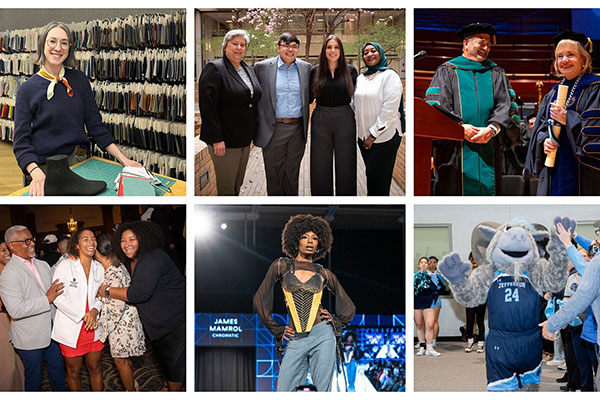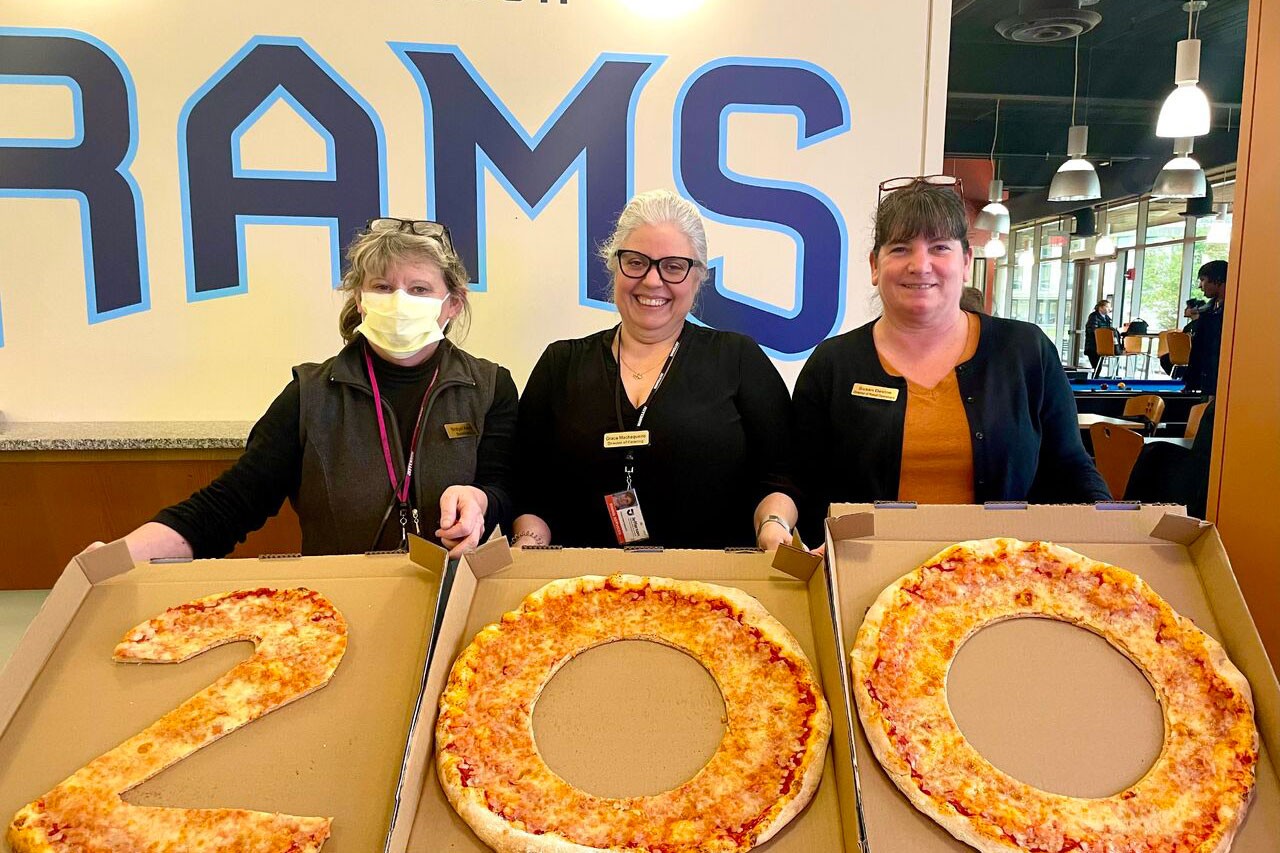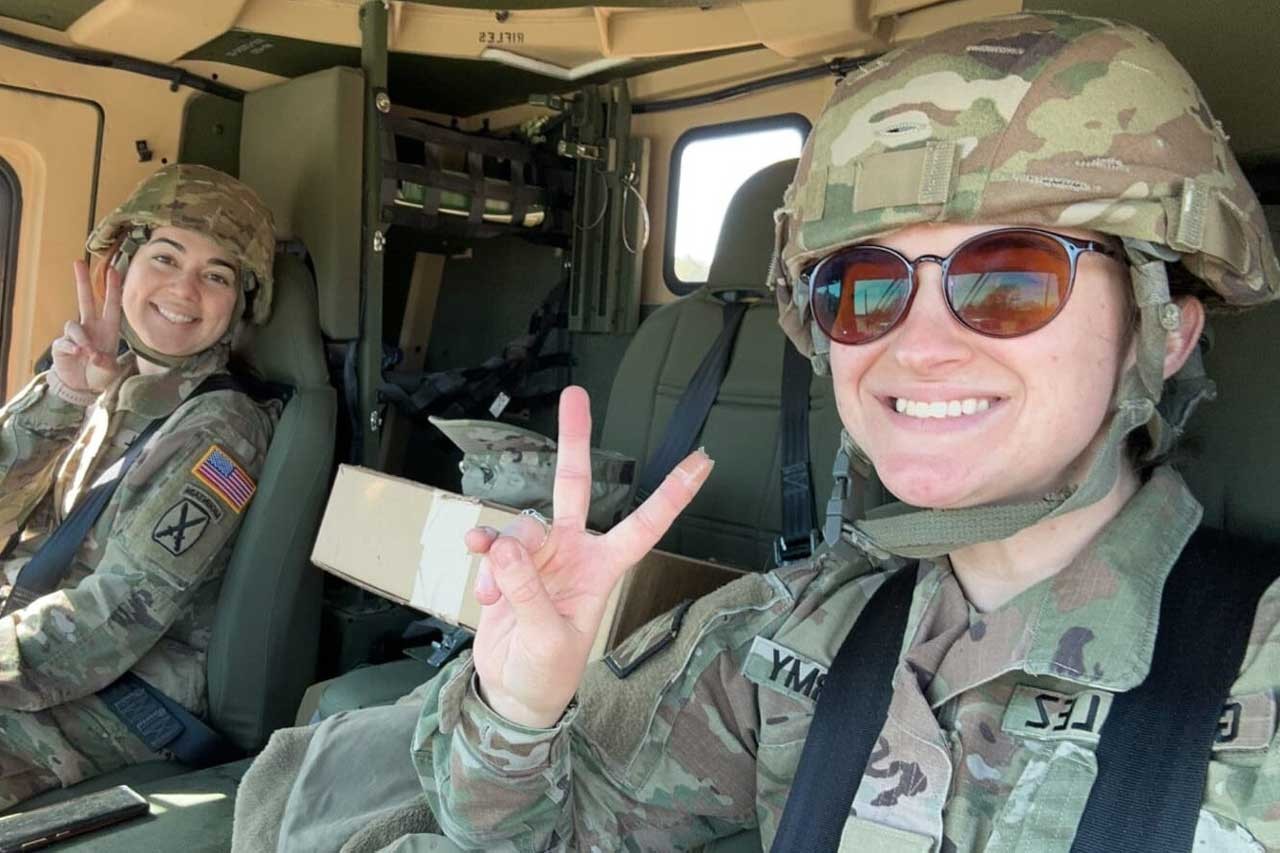
From Considerable Needs to Exceptional Success
Jefferson partnership plays a role in Southwark School’s inspiring turnaround.
When he first arrived at Southwark School in 2013, Andrew Lukov was the school’s eighth principal in 12 years. He faced declining enrollment, a bare-bones budget and intense competition for students from charter and private schools.
He also encountered an extensive list of needs. Chief among them: Finding ways to increase social and emotional health services for Southwark’s diverse population. Nearly one-half (47 percent) of the school’s student body speaks English as a second language (ESL), and many are children from new U.S. immigrants.
Six years later, Southwark, a pre-K-8 school in South Philadelphia (1835 S. 9th St.), stands as a model. Enrollment is up 73 percent. The school ranks 11th in attendance among 162 elementary and middle schools in the School District of Philadelphia. And it’s one of only three schools in the district—and the only K-8 school—to achieve the maximum growth scale score from the Pennsylvania Value-Added Assessment System (PVAAS) in math and English language arts (ELA) for grades 4-8.
The hard-working teachers and staff at Southwark—a City of Philadelphia designated Community School 2016—deserve all the credit for the school’s remarkable turnaround. Helping along the way are many community partners, including both Jefferson (Thomas Jefferson University + Philadelphia University) and Jefferson Health.
“Being a new principal to Southwark in 2013, I was looking for partners,” Lukov says. “One of the things Jefferson did was brainstorm really different ways we can partner.”
Providing Access to Counseling Services
The roots of Jefferson’s Southwark partnership trace back to Jefferson Health’s first Community Health Needs Assessment in 2013.
“I spoke with Andrew about prospective needs in South Philly,” says Dr. Rickie Brawer, co-director of the Center for Urban Health at Jefferson. “At the time, Southwark didn’t have a social worker on staff, and they had only one guidance counselor.”
“Having one counselor for 900 students is difficult,” Lukov says. “Especially since members of our student body have been students in refugee camps, young kids who have lost parents—they’ve been through different kinds of trauma and require intensive therapy.”
To help, Dr. Brawer connected Lukov with Dr. Sara Corse, from the Department of Counseling and Behavioral Health at Jefferson. Dr. Corse began providing Southwark with Master’s-level Couple and Family Therapy students from Jefferson who help counsel students and families. That outreach continues today. “The fact that counseling is school-based and on-site guarantees students are getting the services, and families are coming for those services,” Lukov notes.
As part of the program, Southwark counselor Johanna Bogdan identifies students in need of counseling. Children receive therapy in 30-minute sessions, and parents are invited to participate once a month as needed. “Our students really develop a deep compassion and feeling toward helping the kids and families,” Dr. Corse says.
Meghan Visek, a first-year Couples and Family Therapy student, has been counseling Southwark students since February and sees many benefits. “These children have adult-sized problems, whether it’s peer issues, self-esteem, anxiety, loss or other issues,” she says. “We give them the space and tools that let them talk and process their concerns. It’s reaffirming when a student’s parent tells you she’s seen a change for the better with her child.”
The counseling outreach now also includes an anti-bullying program. Jefferson students give older Southwark students the skills to provide peer counseling to younger students. “So, an eighth-grader who was bullied can talk with a fourth-grader who’s experiencing bullying and share his experiences with empathy,” Dr. Corse says.
Providing Additional Services
In addition to counseling, Jefferson provides multiple other services to Southwark, including school physicals that allow Southwark middle-school students to play on the school’s sports teams. Six years ago, these physicals didn’t happen. Now, staff from the Center for Urban Health at Jefferson University Hospitals and faculty and medical students from Jefferson’s Department of Family and Community Medicine provide physicals. “The kids are thrilled because they’re able to play,” Dr. Brawer says.
Jefferson also partners with Southwark to provide health education. Students from the Jefferson College of Pharmacy teach Southwark sixth-graders as part of their school’s STEM (science, technology, engineering and math) curriculum. Jefferson students review proper ways to read prescription drug labels and effective drug safety practices, among other topics. They also offer Southwark students a window into potential careers as a pharmacist.
Southwark students also have opportunities to learn at Jefferson. Seventh- and eighth-graders have participated in the Saturday Academy, which offers basic science lectures to supplement education in anatomy/physiology, biology, chemistry and math/biostatistics.
Up to 36 Jefferson students volunteer to lead the Academy’s month interactive and fun programs. “We work with middle-school teachers, look at what the children are learning in school, and then design our curriculum to augment and enhance that education,” says Cecilia McCormick, former Jefferson vice provost, academic strategy and special programs.
In the past, school children have toured a mock crime scene to learn about forensic science. They’ve built a windmill from everyday supplies (cups, straws, paper clips) to learn about mechanical energy. And they’ve heated up a cheese puff to learn about thermal energy.
“We’ve taught kids about horsepower by having them run up and down the stairs, timing them, and helping them calculate how much horsepower they’re generating,” says Todd Alter, a senior at the Sidney Kimmel Medical College who has led Saturday Academy programs for three years. “These kids are so smart. It’s gratifying to see them learning new ideas and getting exposed to things that will prepare them for high school.”
Southwark eighth-graders also have participated in Jefferson’s Leadership Academy, a program that teaches children how to make schools healthier and emphasizes leadership skills. In addition, Jefferson staff members volunteer at Southwark on Martin Luther King Jr. Day. They clean and paint classrooms and help refurbish the Southwark library.
“You want your school to be clean, and Jefferson has provided that sweat equity,” Lukov says.
It’s reaffirming when a student’s parent tells you she’s seen a change for the better with her child.
A Community Like No Other
Walk down the hallways at Southwark School and you’re bound to hear a variety of dialects. Students speak 20 primary languages—English, Spanish, Chinese, Vietnamese, Burmese, Arabic, Swahili, Karen and Burmese. The student body is 45 percent Latino, 30 percent Asian, 13 percent African American and 12 percent Caucasian.
But language is no longer a barrier. Five years ago, 70 percent of the school’s ESL students ranked in the bottom level for ELA standardized test scores. Today, that number has dropped to 35 percent thanks to the school’s successful ESL program and its immersive bilingual program spanning from kindergarten to fourth grade. “Many of our staff members are bilingual,” Lukov says.
Such programs make Southwark a sought-after public school, especially for immigrant families. “We are the only school in South Philadelphia that has a projected enrollment this fall of more students,” Lukov says.
Dr. Brawer, who started her career as a health teacher, marvels at Southwark’s success. “Everyone there lives and breathes Southwark, and that makes all the difference in the world,” she says. “We at Jefferson believe in making communities stronger. If we can help a child get the counseling they need, do better in school and help their family, then we do it.”
And Lukov is appreciative of the support. “It’s great that there are organizations like Jefferson … that want to help—help their community, help students in their city, and use the Jefferson name to promote goodness and education. It’s a great thing.”
The partnership with Southwark speaks to Jefferson’s interprofessional, transdisciplinary approach to education. By bringing both clinical and educational services to the children at Southwark, Jefferson is living out its mission—to improve lives.



